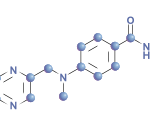Your patient with rheumatoid arthritis (RA) isn’t responding well enough to methotrexate, and you both agree it’s time to consider a biologic or targeted synthetic disease-modifying anti-rheumatic drug (DMARD). But which one should you choose?
In a treat-to-target era, we’re fortunate to have a variety of RA therapies at our disposal. Clinical practice guidelines from the ACR and EULAR help us make evidence-based clinical decisions that optimize patient care, but neither specifies which biologic or targeted synthetic DMARD should be used first because data to support a recommendation are insufficient.1,2
 In June 2023 JAMA Network Open, Claire T. Deakin, PhD, former director of research and biostatistics for Optimising Patient Outcomes in Australian (OPAL) Rheumatology, and a current research fellow at the School of Population Health, University of New South Wales, Sydney, and colleagues shared data on the comparative effectiveness of adalimumab (i.e., a biologic DMARD) vs. tofacitinib (i.e., a targeted synthetic DMARD) in patients with RA new to DMARDs using a novel type of observational study design.3
In June 2023 JAMA Network Open, Claire T. Deakin, PhD, former director of research and biostatistics for Optimising Patient Outcomes in Australian (OPAL) Rheumatology, and a current research fellow at the School of Population Health, University of New South Wales, Sydney, and colleagues shared data on the comparative effectiveness of adalimumab (i.e., a biologic DMARD) vs. tofacitinib (i.e., a targeted synthetic DMARD) in patients with RA new to DMARDs using a novel type of observational study design.3
Head-to-head, randomized controlled trials (RCTs) comparing specific biologic and targeted synthetic DMARDs are limited. Observational studies are an important supplement to RCT data in that they help determine if trial findings can be reproduced in daily clinical practice. However, observational studies come with their own limitations.4 A target trial emulation framework helps address some of those limitations.3,5
“TTE [target trial emulation] is a framework for observational research that aims to strengthen the reliability of observational studies,” explains Dr. Deakin. “The TTE framework asks researchers who are designing an observational study protocol to think through what the key design features would be of an RCT that answers their research question and to then think about how they could emulate those design features using observational data.” Target trial emulation has been used since 2016, but is relatively new to rheumatology.
Deakin et al. used the target trial emulation framework to emulate a comparative effectiveness RCT comparing adalimumab with tofacitinib in biologic or targeted synthetic DMARD naive patients with RA. This helped address the challenges of missing baseline and outcome data, as well as nonrandomized treatment assignment, so evidence could be generated from OPAL Rheumatology, a real-world dataset that includes electronic medical records (EMRs) for more than 200,000 patients with rheumatic conditions in Australia.3
“This research was the product of a long-standing partnership between OPAL Rheumatology and Software 4 Specialists, which has enabled EMRs from large numbers of patients treated in community practices around Australia to be available for research,” says Dr. Deakin.
The trial’s primary outcome was the estimated average treatment effect, defined as the difference in mean Disease Activity Score 28 with C-reactive protein (DAS28-CRP) among patients receiving adalimumab vs. tofacitinib at three and nine months after initiating treatment.
Research Summary
Deakin et al. examined 842 patients in the OPAL Rheumatology dataset. Patients were 18 years or older, had RA, were biologic or targeted synthetic DMARD naive and had at least six months of treatment with a conventional synthetic DMARD. Patients were excluded if they didn’t have at least one component of the DAS28-CRP recorded at baseline and at three and nine months. Most patients were women in their mid-to-late 50s. They were treated with 40 mg of subcutaneous adalimumab every 14 days or 5 mg of tofacitinib by mouth twice daily.
The estimated average treatment effect was -0.2 (95% confidence interval [CI], -0.4 to -0.03) at three months and -0.03 (95% CI, -0.2 to 0.1) at nine months. This translated to a “modest but statistically significant reduction in DAS28-CRP at three months” for patients receiving tofacitinib compared with those receiving adalimumab.3 There was no difference between drugs at nine months. Of note, three months of treatment with either drug led to clinically relevant average reductions in mean DAS28-CRP. This was consistent with previous noninferiority findings concerning for tofacitinib and adalimumab in a 2017 RCT.6
‘This study contributes data on the effectiveness of adalimumab & tofacitinib as used in everyday clinical practice in patients with RA who were DMARD naive & shows that patients respond well to either medicine.’ —Dr. Deakin
Implications
Dr. Deakin was kind enough to share her take on the clinical implications of her fascinating research.
The Rheumatologist (TR): What should practicing rheumatologists take away from these findings?
Dr. Deakin (CD): Both adalimumab and tofacitinib were effective and led to substantial reductions in disease activity at the three-month and nine-month follow-up time points, but tofacitinib led to slightly lower levels of disease activity at three months.
TR: How do these findings inform clinical practice?
CD: There are few studies comparing specific biologic and targeted synthetic DMARDs head to head. This study contributes data on the effectiveness of adalimumab and tofacitinib as used in everyday clinical practice in patients with RA who were biologic or targeted synthetic DMARD naive and shows that patients respond well to either medicine. This information may be useful if there are other circumstances to consider when selecting a biologic or targeted synthetic DMARD.
TR: What can’t these findings tell us?
CD: This study didn’t take into account whether patients were medication adherent at the nine-month follow-up. Although the patient global assessment score is part of the DAS28-CRP, this study also doesn’t tell us if patients’ quality of life improved while they were on treatment.
TR: What are the limitations of the target trial emulation framework as it pertains to observational study trial design? What do you think the future holds regarding rheumatology and target trial emulation observational studies?
CD: There are many limitations in using the target trial emulation framework. For example, the observational data may not have complete information on all the factors that explain why patients were given one treatment or another. Nevertheless, I think the potential for the target trial emulation framework and associated methods to generate high-quality, real-world evidence in rheumatology research is really exciting, especially with the growing use of EMRs. For example, we may be able to do more studies with more patients to understand how effective biologic or targeted synthetic DMARDs are in routine clinical practice and, perhaps, eventually understand which subgroups respond to one medicine over another.
Conclusion
Dr. Deakin and colleagues used a novel observational study design to demonstrate that both adalimumab and tofacitinib are effective in patients with RA who have never before taken a biologic or targeted synthetic DMARD. Both therapies resulted in substantial reductions in disease activity at three and nine months, with tofacitinib slightly more effective than adalimumab at the three-month time point. Although not without limitations, the target trial emulation framework could allow us to conduct larger, more reliable observational studies for our rheumatology patients in the future.
Samantha C. Shapiro, MD, is the executive editor of Harrison’s Principles of Internal Medicine. As a clinician educator, she practices telerheumatology and writes for both medical and lay audiences.
References
- Fraenkel L, Bathon JM, England BR, et al. 2021 American College of Rheumatology Guideline for the Treatment of Rheumatoid Arthritis. Arthritis Rheumatol. 2021 Jul;73(7):1108–1123.
- Smolen JS, Landewé RBM, Bijlsma JWJ, et al. EULAR recommendations for the management of rheumatoid arthritis with synthetic and biological disease-modifying antirheumatic drugs: 2019 update. Ann Rheum Dis. 2020 Jun;79(6):685–699.
- Deakin CT, De Stavola BL, Littlejohn G, et al. Comparative effectiveness of adalimumab vs tofacitinib in patients with rheumatoid arthritis in Australia. JAMA Netw Open. 2023 Jun 1;6(6):e2320851.
- Sherman RE, Anderson SA, Dal Pan GJ, et al. Real-world evidence—What is it and what can it tell us? N Engl J Med. 2016 Dec 8;375(23):2293–2297.
- Hernán MA, Robins JM. Using big data to emulate a target trial when a randomized trial is not available. Am J Epidemiol. 2016 Apr 15;183(8):758–764.
- Fleischmann R, Mysler E, Hall S, et al. Efficacy and safety of tofacitinib monotherapy, tofacitinib with methotrexate, and adalimumab with methotrexate in patients with rheumatoid arthritis (ORAL strategy): A phase 3b/4, double-blind, head-to-head, randomised controlled trial. The Lancet. 2017 Jul 29;390(10093):457–468.



